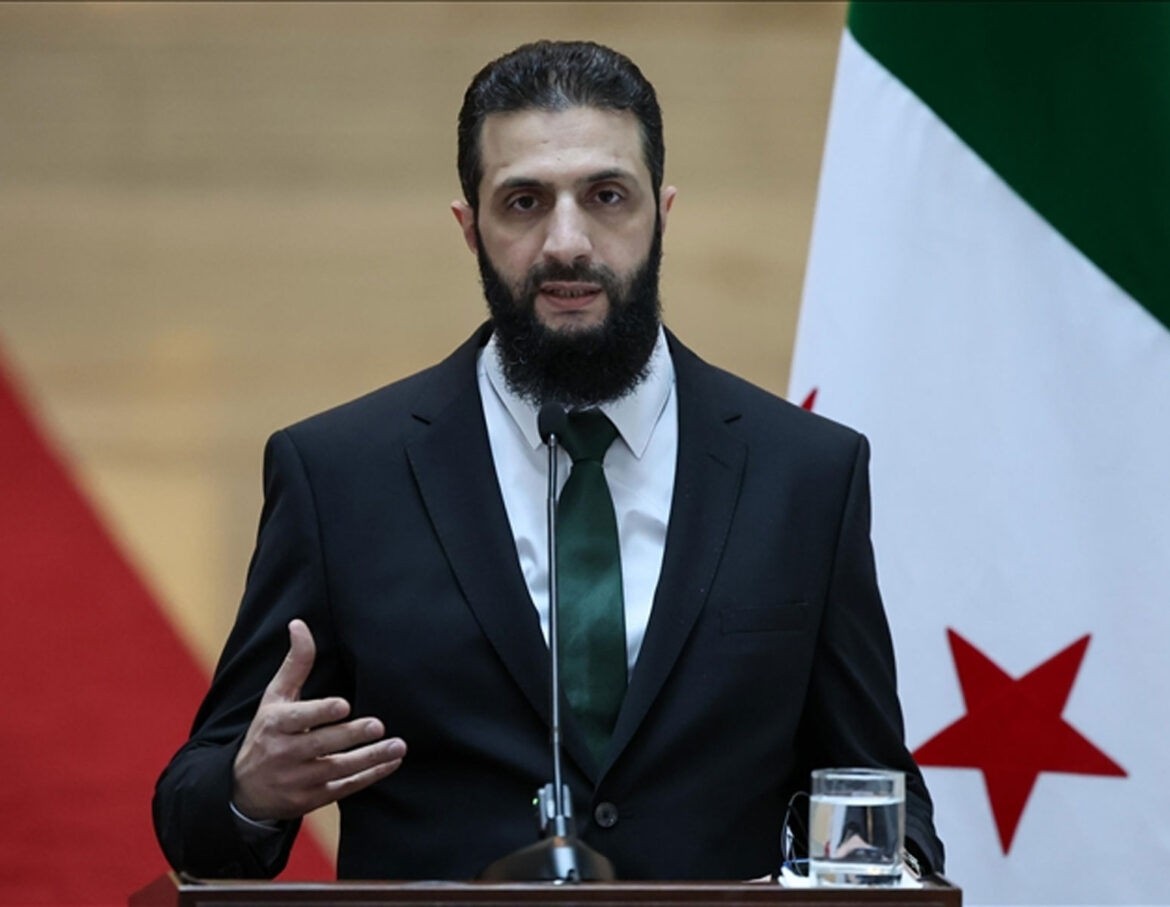Syria’s state media has announced that Ahmed al-Sharaa has been named the country’s new president for the “transitional period” following the overthrow of President Bashar al-Assad. The appointment comes just seven weeks after a military-led offensive, spearheaded by Sharaa and his forces, succeeded in deposing Assad, bringing an end to his 13-year rule.
In a significant move, military commander Hassan Abdul Ghani declared the dissolution of Syria’s 2012 constitution and the dismantling of Assad’s former parliament, military, and security apparatus. Ghani also emphasized the creation of a new government structure, noting that Sharaa’s administration would oversee the formation of an interim legislative council until a new constitution is approved.
During a “Conference for Announcing the Victory of the Syrian Revolution” in Damascus, attended by commanders of rebel factions allied with Sharaa’s Islamist group, Hayat Tahrir al-Sham (HTS), Ghani stated that all factions that opposed Assad during the 13-year civil war would be dissolved and integrated into state institutions.
In his address, Sharaa, dressed in military uniform, acknowledged the immense challenges ahead, stressing the importance of stabilizing the country. “The first priority is to fill the power vacuum in a legitimate and legal way,” Sharaa stated, emphasizing the need for civil peace and transitional justice to avoid further bloodshed. “We must prevent revenge attacks and rebuild trust among Syrians,” he added.
A key focus for Sharaa’s government will be rebuilding state institutions, particularly the military, police, and economic infrastructure, which have been severely weakened over the course of the conflict. He also mentioned that holding new elections would require a comprehensive process, including a new census and a complete overhaul of the constitution, which could take up to four years to complete.
Sharaa highlighted the upcoming “national dialogue conference,” which is aimed at uniting all sectors of Syrian society and ensuring that the political transition is inclusive.
The Syrian civil war, which began with peaceful protests against Assad’s authoritarian regime in 2011, escalated into a brutal conflict that has claimed over half a million lives and displaced 12 million people. Sharaa’s HTS, once an al-Qaeda affiliate and still classified as a terrorist organization by the UN, US, EU, and UK, was crucial in the final push to overthrow Assad’s regime.
On December 8, after a swift 12-day military campaign by rebel forces, Assad resigned and fled to Russia. An interim government, headed by former administration official Mohammed al-Bashir, has been tasked with managing the country until March, when more permanent structures are expected to take shape.



